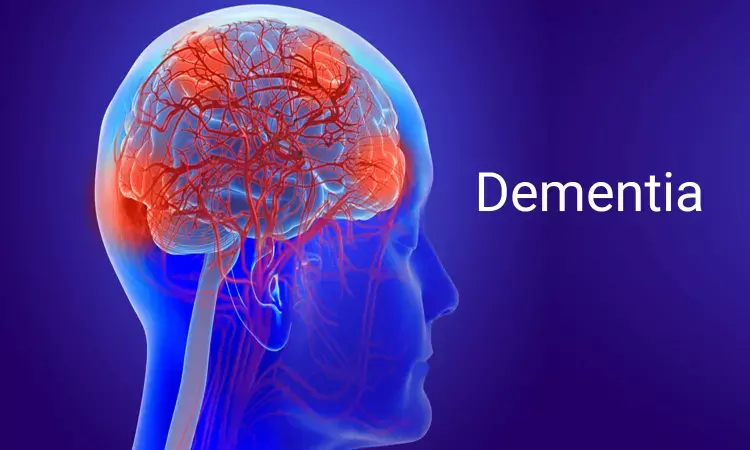- Home
- Medical news & Guidelines
- Anesthesiology
- Cardiology and CTVS
- Critical Care
- Dentistry
- Dermatology
- Diabetes and Endocrinology
- ENT
- Gastroenterology
- Medicine
- Nephrology
- Neurology
- Obstretics-Gynaecology
- Oncology
- Ophthalmology
- Orthopaedics
- Pediatrics-Neonatology
- Psychiatry
- Pulmonology
- Radiology
- Surgery
- Urology
- Laboratory Medicine
- Diet
- Nursing
- Paramedical
- Physiotherapy
- Health news
- Fact Check
- Bone Health Fact Check
- Brain Health Fact Check
- Cancer Related Fact Check
- Child Care Fact Check
- Dental and oral health fact check
- Diabetes and metabolic health fact check
- Diet and Nutrition Fact Check
- Eye and ENT Care Fact Check
- Fitness fact check
- Gut health fact check
- Heart health fact check
- Kidney health fact check
- Medical education fact check
- Men's health fact check
- Respiratory fact check
- Skin and hair care fact check
- Vaccine and Immunization fact check
- Women's health fact check
- AYUSH
- State News
- Andaman and Nicobar Islands
- Andhra Pradesh
- Arunachal Pradesh
- Assam
- Bihar
- Chandigarh
- Chattisgarh
- Dadra and Nagar Haveli
- Daman and Diu
- Delhi
- Goa
- Gujarat
- Haryana
- Himachal Pradesh
- Jammu & Kashmir
- Jharkhand
- Karnataka
- Kerala
- Ladakh
- Lakshadweep
- Madhya Pradesh
- Maharashtra
- Manipur
- Meghalaya
- Mizoram
- Nagaland
- Odisha
- Puducherry
- Punjab
- Rajasthan
- Sikkim
- Tamil Nadu
- Telangana
- Tripura
- Uttar Pradesh
- Uttrakhand
- West Bengal
- Medical Education
- Industry
Statin use may increase dementia risk in patients with mild cognitive impairment: Study

USA: The use of lipophilic statins in patients with mild cognitive impairment (MCI) is associated with more than double the risk of dementia versus those not using statins, finds a recent study.
According to the study, PET scans of the patients using lipophilic statin showed a highly significant decline in metabolism in the brain area first impacted by Alzheimer's disease.
The findings of the study were presented at the Society of Nuclear Medicine and Molecular Imaging 2021 Annual Meeting and subsequently published in the Journal of Nuclear Medicine.
Statins are medications used to lower cholesterol and reduce the risk of heart attack or stroke. They are the most commonly used drugs in the developed world, and nearly 50 percent of Americans over age 75 use a statin. Different types of statins are available based on a patient's health needs, including hydrophilic statins that focus on the liver and lipophilic statins that are distributed to tissues throughout the body.
"There have been many conflicting studies on the effects of statin drugs on cognition," said Prasanna Padmanabham, project head, statins and cognition in the molecular and medical pharmacology student research program at the University of California, Los Angeles in Los Angeles, California. "While some claim that satins protect users against dementia, others assert that they accelerate the development of dementia. Our study aimed to clarify the relationship between statin use and subject's long-term cognitive trajectory."
Researchers separated study participants into groups based on three parameters: baseline cognitive status, baseline cholesterol levels and type of statin used. Participants underwent 18F-FDG PET imaging to identify any regions of declining cerebral metabolism within each statin group. Eight years of subject clinical data was analyzed.
Patients with mild cognitive impairment or normal cognition who used lipophilic statins were found to have more than double the risk of developing dementia compared to statin non-users. Over time, PET imaging of lipophilic statin users also showed a substantial decline in metabolism in the posterior cingulate cortex, the region of the brain known to decline the most significantly in the earliest stages of Alzheimer's disease. In contrast, no clinical or metabolic decline was found for users of other statins or for statin users with higher baseline serum cholesterol levels.
"By characterizing the metabolic effects associated with statin use, we are providing a new application of PET to further our understanding of the relationship between one of the most commonly used classes of drugs and one of the most common afflictions of the aging brain," noted Padmanabham. "Findings from these scans could be used to inform patients' decisions regarding which statin would be most optimal to use with respect to preservation of their cognition and ability to function independently."
Reference:
The study titled, "Lipophilic Statins in Subjects with Early Mild Cognitive Impairment: Associations with Conversion to Dementia and Decline in Posterior Cingulate Brain Metabolism in a Long-term Prospective Longitudinal Multi-Center Study," is published in the Journal of Nuclear Medicine.
DOI: https://jnm.snmjournals.org/content/62/supplement_1/102
Hina Zahid Joined Medical Dialogue in 2017 with a passion to work as a Reporter. She coordinates with various national and international journals and association and covers all the stories related to Medical guidelines, Medical Journals, rare medical surgeries as well as all the updates in the medical field. Email: editorial@medicaldialogues.in. Contact no. 011-43720751
Dr Kamal Kant Kohli-MBBS, DTCD- a chest specialist with more than 30 years of practice and a flair for writing clinical articles, Dr Kamal Kant Kohli joined Medical Dialogues as a Chief Editor of Medical News. Besides writing articles, as an editor, he proofreads and verifies all the medical content published on Medical Dialogues including those coming from journals, studies,medical conferences,guidelines etc. Email: drkohli@medicaldialogues.in. Contact no. 011-43720751


